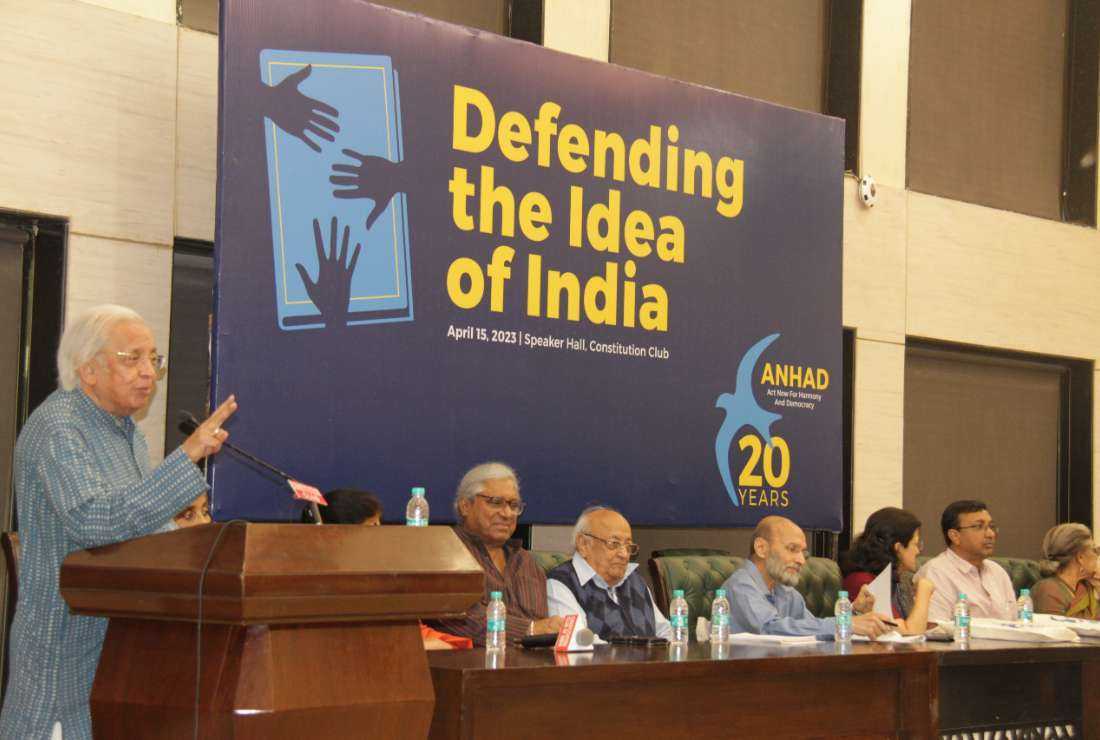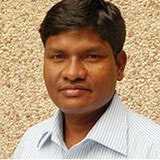Rights activists say India’s democratic space has increasingly decreased in the past two decades

Poet-critic Ashok Vajpeyi speaking at the 20th anniversary of ANHAD, set up in 2003 following the Gujarat riots, in New Delhi on April 15. (Photo: Bijay Kumar Minj)
Civil society in India observed the 20th anniversary of a human rights outfit that was set up in March 2003 following the Hindu-Muslim riots in Gujarat when Prime Minister Narendra Modi was the chief minister of the western Indian state.
Human rights activists, lawyers, historians, economists, and academicians, who gathered in New Delhi on April 15 to mark the anniversary of ANHAD (Act Now for Harmony and Democracy), decried the shrinking democratic space and freedoms in the country.
“There is growing violence, an atmosphere of hatred across the nation, and a consistent attack on the democratic fabric of our country,” Shabnam Hashmi, ANHAD founder, told UCA News while referring to the recent attacks spearheaded by right-wing groups across India, which are affiliated to the pro-Hindu party of Modi.
Hashmi said that “the constitutional and human rights of people, most notably the fundamental right to equality, the right to live with dignity, to question the state and dissent have been trampled with impunity.”
Institutions of oversight have been systematically silenced, independence of the judiciary is under threat and the functioning of the parliament is gravely compromised by the pro-Hindu ruling party since it came to power in 2014, she said.
The theme of the anniversary, “Defending the Idea of India” was in response to the current situation in the country, she said.
Recently, the federal government introduced new school textbooks which have dropped topics like the history of the Mughal courts, the 2002 Gujarat riots, mention of Dalits or former untouchables writers, the communist Naxalite movement opposing semi-feudal domination for decades, and other fights for equality.
“The country is going through a terrible situation. The minorities and the marginalized are being pushed to the wall by removing many of their contributions to the freedom struggle and development of India from the education curriculum,” A.C. Michael, president of the Federation of Catholic Associations of Archdiocese of Delhi told UCA News.
Poet-critic Ashok Vajpeyi said there is an attempt to replace plurality with majoritarianism. This can be seen in the words and actions of the ruling party.
Scientific temper is being replaced with myths and misinformation, he said, referring to the efforts of the current dispensation to make India a theocratic Hindu nation.
Pamela Philipose, a well-known journalist, said there has been a clampdown on access to information in the past few years to stop independent media and voices from thriving in the country.
Prem Shankar Jha, an economist, emphasized the need for people to safeguard democracy. He urged people not to fall victim to the propaganda of divisive political agendas.

